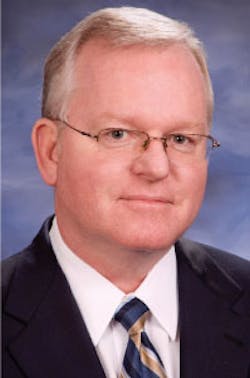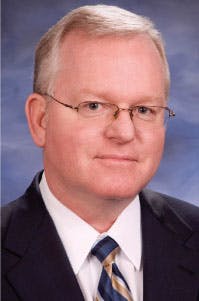Until now much of the focus surrounding the energy agenda hasn’t been on the consumer, but on the supply of energy, its infrastructure and the engineering behind it. Questions remain about the future of the world’s energy supply, from our dependence on oil imports and the controversies that surround fracking for shale gas to the long-term feasibility of renewable energy sources. We also must develop a more optimized solution to distribute these energy sources to a broader network of consumers.
Are we tackling these issues from the wrong end? Shouldn’t we be more focused on the demand side and on educating and empowering consumers to take control, by securing and monitoring their own energy consumption? The digital revolution and the current information age provide the answers to some of these questions. Having completely transformed every other economic sector since the beginning of the 21st century, the revolution in digital technology and communication has the ability to completely transform the way we use and manage our energy by responding to consumer demand for the desire for greater control and a more user-friendly interface.
Think of how quickly certain industries, such as the music and mobile communication industries or the Internet, have developed as a result of the digital revolution:
- Music transitioned from records and tapes to CDs and MP3 files
- In 1990 there were 12.4 million cell phone subscribers — by 2010 there were 400 million
- In 1990 there were 2.8 million internet users — by 2012 there were 2.4 billion, according to www.internetworldstats.com.
These industries have been transformed thanks to their ability to respond to consumer demand. Change is on the way for the energy industry, too, and it’s accelerating thanks to the new behaviors and habits of the millennial generation, who have become used to a personalized experience that meets their individual needs and preferences.
Although today we still rely on an energy infrastructure that was built and continues to operate on an energy platform originally designed over 100 years ago, the future lies in a decentralized model that will see consumers producing more of their own energy, not only to share with one another, but also to customize for their own, personal use.
Take micro-grids for example. Microgrids are small, self-contained electricity grids with their own power sources. The power sources can vary, but usually they will consist of a renewable energy source such as solar or wind. Depending on the reliability of the energy source, microgrids can operate independently of the main utility grid or in conjunction with it. Offering a greater degree of energy independence, they therefore also safeguard the end-user against power grid failure. Advancements such as these would not be possible if it were not for the technologies born out of the digital revolution.
Innovations that marry the digital and energy disciplines are increasingly widespread, including software that controls the energy consumption of buildings, and interoperable communicating devices such as temperature and air quality sensors, variable-speed drives and LED lighting controls. These are just a few examples of the technology changing the way we use energy.
While some of these technologies have been around for many years, their adoption has only recently started to increase significantly and will continue to do so, as consumers start to apply the same behaviors to the way they listen to music (through the personalized interface of the iPod) or the way they communicate with one another (the rise of the smart phone), to the way they manage and consume energy.
Encouragingly, a recent survey published by the Rexel Foundation for a Better Energy Future found that 70% of consumers are planning to make energy efficiency improvements to their homes within the next five years. This number is significant and indicative of a strong trend and opportunity for the energy industry. The generational split in these survey findings also highlights a bright future for the trend in energy efficiency.
Check out the percentages by age group of survey respondents seeking to implement “active” energy efficient technology upgrades to their homes in the next five years:
- 18-24 years – 68%
- 25-34 years – 68%
- 35-49 years – 52%
- 50-64 years – 44%
- 65 years-plus – 28%
This data demonstrates that the energy revolution is, and will continue to be, driven by today’s younger generation, who have grown-up in the digital age and are already adept at using technology to improve efficiencies. The 18-34 years-of-age demographic is not fearful of the change that technology can bring.
Professional distributors of energy-efficient products and services are working closely with manufacturers and electrical installers to ensure that meeting this growing demand with solutions that are both simple to use and easy to install, but also financially attractive, is top of the agenda. To expedite the energy transition and successfully switch to an “Energy 3.0” world, consumers need more assistance taking control of their energy use. This requires greater investment in expertise and training to stimulate growth and to support the development of new energy professions.
Rexel plays a pivotal role in the industry between manufacturers, electrical installers and construction companies, promoting progress in a context where, all too often, the major energy players focus on the infrastructure, energy mix and production, without much thought given to the demand logic.
By working closely together in the energy industry, we can offer the most relevant services and solutions that will enable every person to take control of his or her energy and optimize their consumption, only using what they really need. The debate on this energy transition is therefore an opportunity for us to drive forward a social evolution and create a new model, no longer based on supply, but on the needs of the consumer. The technology is there, the willingness is there, we just need to advance the agenda throughout every touch point in the energy continuum.

